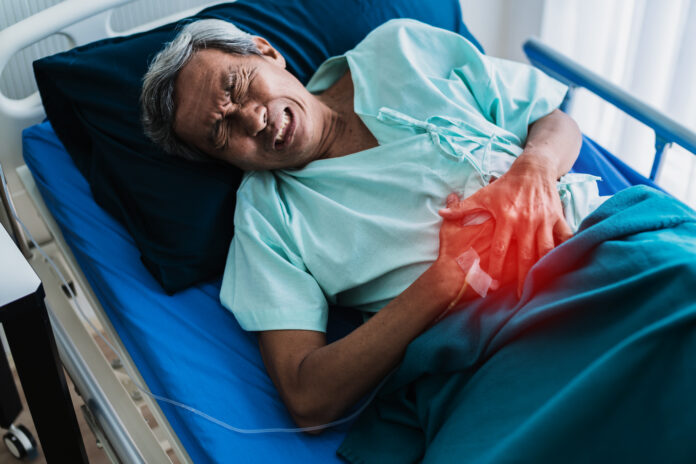Your kidneys perform several important functions in your body, such as cleaning your blood, controlling your blood pressure, maintaining production of red blood cells, filtering extra water out of your blood and metabolism of vitamin D for bone health. Kidney diseases affect all these functions negatively. This means your kidney health is directly linked with efficiency of different organ systems in your body.
Anatomical studies of the human body show that you have two kidneys, on either side of your spine, just above your waist. The accumulation of waste products in your body causes swelling in your ankles, shortness of breath, poor sleep, weakness and nausea. If you let your damaged kidneys untreated, they may eventually stop working that can lead to life-threatening conditions.
What are Kidneys?
Kidneys are the special organs found in your body which perform the function of your blood filtration. These are bean-shaped and a specific part of your urinary system. Your kidneys remove wastes from your blood and help excrete that wastes from your body in the form of urine. Healthy kidneys can filter nearly 300 quarts of blood everyday. A healthy person excretes about two to three quarters of urine daily on average. Your body can reuse the remaining quarts of fluid. Your kidneys also maintain the balance of fluid in your body. Kidneys are the special organs that help keep balance of electrolytes in your blood. These electrolytes contain essential minerals, needed by your body, including potassium and sodium.
Who is at the Greatest Risk of Kidney Disease?
The people living with certain health conditions like high blood pressure (hypertension) and diabetes are more likely to develop kidney disease. In addition, sudden traumas or unexpected accidents also harm your kidneys, like injuries occur due to sports or car accidents.
Important Functions of Kidney
Kidneys are one of the most vital organs of your body because they help filter your blood along with regulating the amount of potassium, salt, pH, and other essential minerals and vitamins. Your kidneys can be exposed to various diseases due to some negative lifestyle habits, genetic factors and various health conditions.
More functions of kidneys include:
- Making an active form of vitamin D, required for your bone health and other body functions.
- Removing waste from your blood after exposure to medications or chemicals, digestion process, and muscle activity.
- Keeping the minerals and water in balanced form.
- Forming new molecules of erythropoietin, a special chemical that helps produce new red blood cells in your body.
- Managing your blood pressure by making a special chemical called renin.
What is Kidney Disease?
Kidneys are located at the bottom of the rib cage, having a size equal to your fist. Kidneys perform the most important function in your body by removing excess water, impurities, and waste products from your blood. Your bladder stores these toxins for a short time and then excrete them through urethra in the form of urine. Thus, they help maintain a healthy body. They produce hormones that perform important functions in your body.
Studies show that many people are affected by kidney disease every year. It happens due to any damage to your one kidney or both. The damage may be caused due to long-term chronic conditions including hypertension and high blood sugar levels in the body. Some other health problems caused by kidney diseases include malnutrition, weak bones and nerve damage. If these diseases are left untreated for a long time, your kidneys may get completely damaged and stop working properly. Then dialysis helps the kidney to perform their function. Dialysis is a treatment option that helps filter or purify your blood through a specific machine. This treatment option can not cure your kidney disease, but can manage some symptoms and help prolong your life.
Types of Kidney Diseases with their Causes
This is the most common type of kidney disease that occurs due to crystallization of minerals and other substances in your kidneys. These crystals convert into solid mass or stones. Kidney stones can come out from the kidneys while you urinate but it happens rarely. The passing out of stones with urine is a painful process , but can relieve the symptoms.
Urinary Tract Infections (UTIs)
These are the bacterial infections that affect any part of your urinary system, such as your ureters, urethra and bladder. Such infections are easily treatable and usually cannot lead to life-threatening health conditions. However, if left unchecked, the infections can cause kidney failure by spreading to the whole kidneys.
Chronic Kidney Disease
This is another common type of kidney disease. This is a long-term condition that cannot be improved over time and commonly caused by high blood pressure (hypertension). This means high blood pressure is the most severe cause of kidney damage as it causes increased pressure on the glomeruli. The smallest blood vessels are called glomeruli. They help clean blood and remove wastes from blood. The increased pressure damages these vessels and as a result kidneys stop working properly. The deterioration in the kidney structure leads to the point where kidneys fail performing their function properly. This condition needs dialysis as treatment.
Another treatment option for kidney disease or kidney failure is kidney transplant.
Polycystic Kidney Disease
This is a genetic disorder that makes small fluid filled sacs in your kidneys. These fluid filled sacs are called cysts which interfere with your kidney function and cause deadly damage to the kidneys.
Thing to remember is that kidney cysts individually are common and usually have not caused any harm. However polycystic kidney disease is a more serious condition.
Glomerulonephritis
The inflammation of glomeruli is called glomerulonephritis. Glomeruli perform the blood filtration and they are very small in size. Certain infections cause this kidney disease. Some other causes of this type of kidney disease include congenital abnormalities (disorders that occur during birth), and certain drugs. However, it generally gets better on its own.
Symptoms of Kidney Disease
People find it difficult to identify the early symptoms of kidney disease. The symptoms of kidney disease can be noticed only when they become more severe and unbearable. Common symptoms or warning signs appear in the early days of kidney disease development include:
- Frequent urination, especially during sleep hours.
- Muscle cramping.
- Fatigue.
- Puffiness around the eyes after waking up.
- Difficulty concentrating.
- Dry, scaly skin.
- Swollen ankles and feet.
- Poor appetite.
Here are some more severe symptoms that indicate progression of your kidney disease into kidney failure are:
- Changes in urine output.
- Hyperkalemia ( sudden rise in potassium levels).
- Decrease number of red blood cells (anemia).
- Decreased sex drive.
- Vomiting.
- Nausea.
- Loss of appetite.
- Fluid retention.
Risk Factors for Developing Kidney Disease
Research shows that diabetes is the leading cause of kidney disease. Studies also confirmed that diabetes increases the risk of developing kidney disease. Research shows that some factors cause higher chances to develop kidney disease. These risk factors include:
- Being overage.
- Have hypertension.
- Have a parent or sibling with chronic kidney disease.
According to studies kidney disease occurs more in the people living in Asia, Africa or America.
Diagnosis of Kidney Disease
Doctors generally run some tests to check if your kidneys are working properly or they have a malfunction. They first determine at which stage of disease your kidneys ate. These tests include:
Urine Test
This test is carried out to check if albumin is present in urine. Albumin protein passes into your urine when the kidneys are damaged. This means the presence of albumin in your urine is the confirmation of kidney disease.
Glomerular Filtration Rate (GFR)
Doctors carry out this test to measure how well your kidneys are working and to determine the stage of kidney disease.
Blood Creatine Test
Sometimes a waste product from your muscles is released into your blood. The breakdown of this stored molecule increases the levels of creatine in your blood. This will indicate that your kidneys are not working properly.
Computed Tomography (CT) Scan or Ultrasound
These technologies are used to produce clear images of your urinary tract and kidneys. Your doctor examines your kidneys size if they are too small or large. Tumors or any structural problem is also identified through CT Scan or ultrasound.
Kidney Biopsy
During this procedure, small pieces of tissue from your kidney are removed while you’re sedated. Your doctor determines the type of kidney disease by examining this sample. They also try to determine how much damage has occurred to the kidneys.
Treatment of Kidney Disease
Whenever you think about treating kidney disease, your first and foremost step should be controlling the underlying causes of the disease. For this purpose, your doctor may help you better manage your cholesterol level, blood pressure and blood sugar levels. More methods to treat kidney disease include:
Medications and Drugs
Drugs or medications used for controlling high blood pressure can slow the progression of kidney disease. You can use ACE inhibitors like ramipril and lisinopril to control your high blood pressure. But remember using these medications without prescription of a professional doctor is not recommended as safe. These medications are prescribed to preserve your kidney function even if you don’t have a high blood pressure problem.
Some cholesterol drugs such as simvastatin are also used to treat kidney disease. These medications help reduce blood cholesterol levels and help maintain kidney health. Sometimes, you may be asked to use drugs to relieve swelling and treat anemia
Lifestyle Changes and Dietary Measures
Dietary changes and positive changes in your lifestyle are also helpful in treating kidney disease. Good diet and healthy lifestyle are more effective than medications and drugs. The most recommended lifestyle and dietary changes necessary for kidney health include:
- Maintaining a moderate weight.
- Reducing salt intake.
- Quitting smoking.
- Managing diabetes by taking insulin.
- Limiting alcohol consumption.
- Staying active physically.
- Limiting foods high in cholesterol.
- Eating a heart-healthy diet, which is full of fresh veggies, fruits, low fat dairy products and whole grains.
Dialysis as Treatment for Kidney Disease
Dialysis is a method to manage kidney disease when they are close to failing or have failed. People with-last stage of kidney disease use this artificial method permanently or until a kidney for transplant is found. Dialysis is of two types:
- Hemodialysis.
- Peritoneal Dialysis.
Hemodialysis: A dialysis machine is used in this method. Blood of the patient is pumped into this machine to filter the water from it. This procedure is not easy but sometimes it can be done at your home and often at a dialysis clinic. The side effects of hemodialysis are muscle cramping, low blood pressure and itching.
Peritoneal Dialysis: In this type of dialysis, a tube is implanted around the outer lining of your abdominal wall. A fluid named dialysate is filled in this tube. The waste products from blood flow towards dialysate through peritoneum. The waste filled dialysate then drains from the abdomen and your blood is filtered.
Common side effects of peritoneal dialysis is the infection in the area of the abdomen where the tube was implanted or in the abdominal cavity. More side effects include hernias and weight gain.
Conclusion
Kidney health is associated with your dietary habits and lifestyle. Several risk factors including your age, unchecked use of drugs or alcohol, high blood pressure, high cholesterol levels and unhealthy eating habits can cause kidney disease. Some simple lifestyle changes or dietary measures including drinking plenty of water, reducing salt and calcium intake, quitting smoking, and managing your blood sugar and blood pressure can help you prevent kidney disease.
In case of severe kidney disease, talk to your doctor so that they can prescribe effective medications or other treatment options to improve the condition. Medications, lifestyle changes, dietary changes and dialysis are common treatment options for kidney disease when your kidney is close to failure. When a kidney gets completely damaged and cannot perform its function at all, it is replaced by a healthy kidney. This is called kidney transplant.







